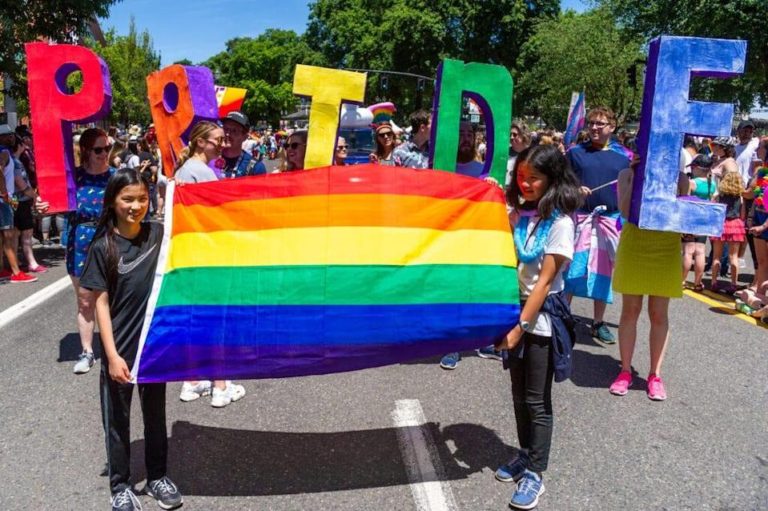

Oregon became the 14th US state to finally ban the so-called “gay and trans panic defence” on Sunday (23 May), leaving just 36 more states to go.
Governor Kate Brown has signed Senate Bill 704 which brings to an end defendants being able to use a victim’s sexuality or gender identity to defend their actions.
“The passage of this bill will send a strong and proactive message that the perpetrator of a second-degree murder will not be able to excuse the crime simply based on who their victim is,” said the bill’s chief sponsor, Democratic lawmaker Karin Power, the Washington Blade reported.
The decades-old legal strategy, which has historically been used to lessen charges or shorten a sentence, argues that the defendant acted in a state of temporary insanity because of unwanted sexual advances from LGBT+ people.
Both legal experts and queer advocates alike have argued that such a defence places blame onto the victim – effectively codifying homophobia into law.
But, as SB704 reads: “The discovery of a victim’s actual or perceived gender, gender identity, gender expression or sexual orientation does not constitute reasonable explanation for extreme emotional disturbance or purposes of affirmative defense to murder in the second degree”.
Brown signing the ban into the books comes after the law glided through both houses this year, drawing unanimous approval in the state’s House of Representatives and a 29-1 victory in the Senate.
Oregon now joins 13 other states legislatures, alongside the District of Colombia, which have approved bans on the discriminatory panic defence.
Vermont and Virginia both banned the strategy this year, while similar measures are inching closer across a dozen state legislators, including Florida and Texas, according to the LGBT Bar, which is monitoring the passage of LGBT+ panic defence bans.
The panic defence itself stems from the outdated attitude that to be LGBT+ was to have a mental illness, according to a 2016 study by the Williams Institute. Such reviled notions have been widely discredited by leading healthcare organisations.
The American Bar Association urged all US governments to ban it in 2013.
Writing in a report, lawyers across the country described the defence which has been used since as early as the 1960s as a “remnant of a time when widespread public antipathy was the norm for LGBT+ individuals”.
“By fully or partially excusing the perpetrators of crimes against LGBT+ victims,” they wrote, “these defences enshrine in the law the notion that LGBT+ lives are worth less than others.”